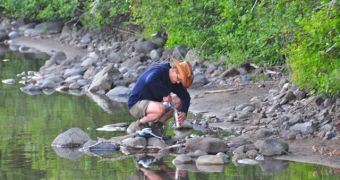The host of climate talks is far from being a stranger to outdoor pollution. While diplomats try to find appropriate methods of curbing greenhouse gas emissions and tackling climate change, south Durban inhabitants are forced to cope with headaches and nausea generated by the activities of industrial facilities counting as major polluters.
The air smells like rotten cabbage mixed with almonds and 'cat wee', because of the presence of crowded landfills, a few chemical enterprises, two important paper mills and a couple of oil refineries, according to the Guardian. [admark=1]Most of the environmental activists who are aware of this phenomenon think that international diplomats will never find out what is really happening in the middle of “toxic Africa.” Apparently, South Durban is the place where all the hazardous chemicals in the world meet.
"We have methanol, ethanol, solvents, toxins, dioxins, benzene, sulphides, bleaches, every chemical in the world here. There is gas flaring twice a day. Leaks, explosions and fires are common yet there are 285,000 people living within a few yards of the factories and refineries,” stated Desmond D'Sa, from the South Durban Community Environment Alliance.
D'Sa is a zealous eco-friendly volunteer keen on revealing the truth regarding the fate of south Durban inhabitants, threatened by dangerous compounds.
He has witnessed 20 devastating chemical fires that have occurred in that area in the last 16 years and has helped communities recover after the devastating impact of oil leaks. So far, he has contributed to closing two sites considered highly dangerous for human health.
The activity of important refineries is correlated with the highest rate of cancer and asthma, one of Africa's ugliest blemishes. It appears that this situation is not unusual for this region, since almost half of the population has to deal with respiratory problems.
The activist thinks the Durban talks will have no real impact on the lives of financially-challenged people from South Africa, as they are cursed to be followed by sources of pollution.
"There's one standard for EU lives, another for African ones. We have an enforcement vacuum here and no political will to do anything," concludes Desmond D'Sa.

 14 DAY TRIAL //
14 DAY TRIAL //